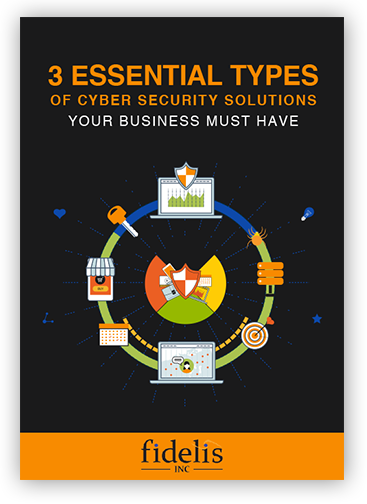There’s never a dull moment in the dynamic world of information security as businesses face a growing range of threats from cybercriminals, state-sponsored cyberattacks, and corporate espionage. As the world becomes more dependent on digital technologies, the IT landscape is more perilous than ever, but that’s no reason to lose hope. After all, businesses have always faced a multitude of threats from malicious parties. Only now, the threats largely exist in the digital space, hence the need to keep one step ahead by staying informed.
#1. Increased focus on cloud systems
While there’s no denying the benefits of incorporating the cloud in business processes, the trend towards greater connectivity has seen an exponential increase in potential vulnerabilities. As companies move more data to cloud-connected data centers and incorporate an increasing number of mobile devices into their operational portfolios, hackers are increasingly likely to go for third-party providers.
Cloud providers themselves are often the first to get the blame, but attackers usually exploit misconfigurations such as weak account credentials. Firms are still liable for safeguarding access to their information, no matter where it lives, hence the need for multilayered cloud security, strong passwords, and multifactor authentication.
#2. New privacy regulations shape spending
The European Union’s General Data Protection Regulation (GDPR) has been in force for over a year and a half now, but many organizations have yet to keep up with the demands. It’s not the only law companies have to worry about as well. The California Consumer Privacy Act (CCPA) is one of many others that have followed suit, and there will no doubt be many more.
Companies often take a reactive approach to information security and privacy when instead both should be incorporated into every business operation as soon as possible. But it’s no longer just about ticking boxes to become compliant; it’s also a new opportunity for enabling business growth in a time where digital privacy is the concern of the century.
#3. State-sponsored cyberattacks
While political upheavals and conflicts around the world are nothing new, the new era of war is edging closer towards cyberspace. State-sponsored actors often target economically and politically influential organizations, such as critical infrastructure and data-heavy organizations to undermine their rivals.
It’s not just about disrupting energy grids and compromising military and nuclear systems, either. Every entity is a potential target for spreading misinformation and causing widespread social and economic disruption. We can also expect it to become increasingly difficult to identify state-sponsored cyberattacks from those carried out by lone actors.
#4. Biometrics creating a false sense of security
Biometric security has long been hailed as a one-size-fits-all solution for multifactor authentication used to verify a user’s identity instead of relying on passwords alone. In the age of phishing scams, it makes sense too, since things like fingerprints and faces can’t be stolen and exploited in the same way that passwords can.
Only that line of thinking misses the point that, once a biometric identifier is exploited, it can never be used again. After all, if the biometric data of someone’s face is compromised, they can hardly get a new face. In other words, if biometric data is stolen, its subject will never be able to use it again.
#5. Increasing shortage of security skills
The world is facing a desperate shortage of specialized cybersecurity skills, which in 2019 was found to impact almost three-quarters of all organizations around the world. On top of recurring issues like ineffective training and top talent heading to the dark side, there’s also the fact that cybersecurity expertise is getting more and more expensive to hire.
It already costs $180,000 on average to hire a CISO in the United States for example, and other specialists hardly come cheap either. Given the growing skills gap and the high costs of maintaining an in-house technology department, outsourcing is becoming an increasingly popular option for smaller businesses.
Fidelis provides the full range of cybersecurity services and expertise today’s companies need to be safe and successful in 2020. Talk to us today to learn more.
Download our free eBook!
Still unsure how to secure your business? Read our eBook, 3 Essential types of cyber security solutions your business must have and find out how you can optimize your business's cybersecurity without spending too much.


